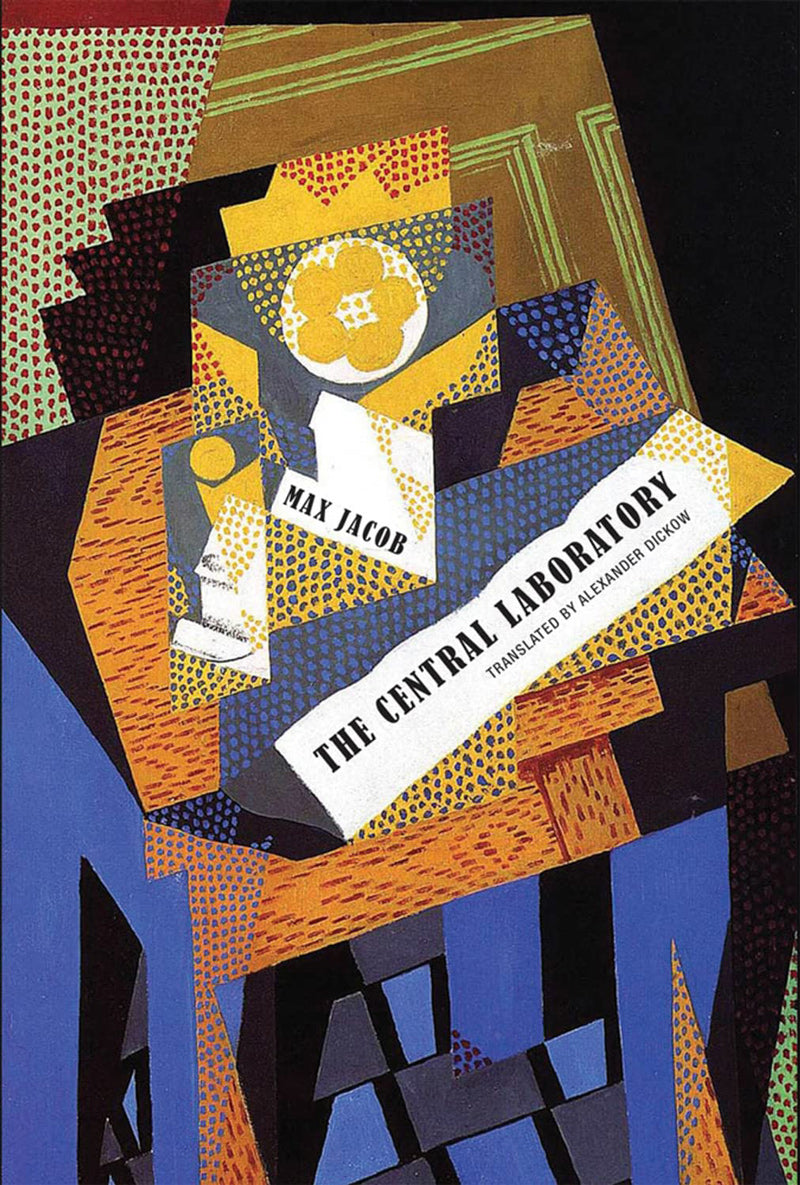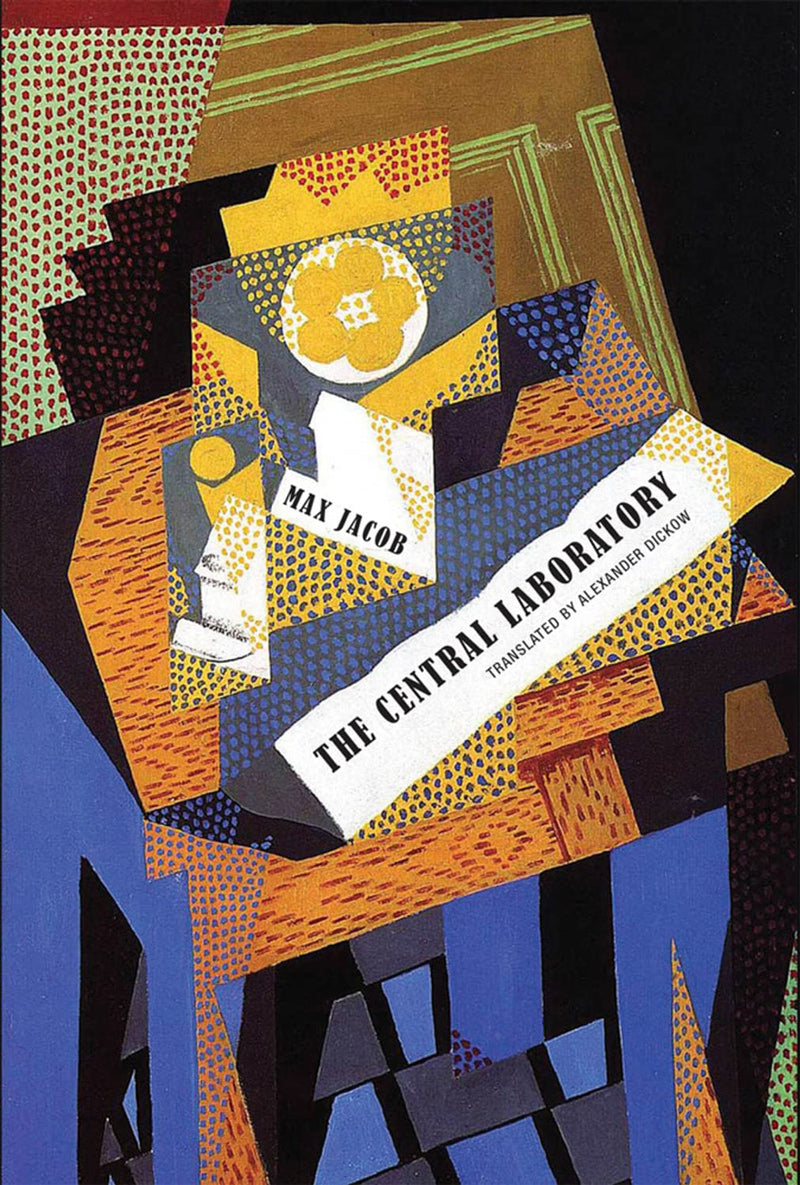The Central Laboratory
The Central Laboratory
Max Jacob
Couldn't load pickup availability
Translated, with an introduction, by Alexander Dickow / July 2022 / 5.375 x 8, 368 pp. / 978-1-939663-80-1
When Max Jacob published The Central Laboratory in 1921, Cubism’s glory days had passed, the Parisian Dada movement had just officially come to an end, and the surrealist movement was yet to be born. The poetic scene in Paris was between definitions, and in that sense, Jacob’s work embodied the moment.
The Central Laboratory is distinctly modern yet utterly discordant with anything else that had been published before: a grab bag of popular genres, operettas, Breton folk song, nonsense poetry, nursery rhyme, cockeyed doggerel, pastiche, parody, and puns in which sound often trumps sense. In this collection, Jacob changes register on a dime, shifting from societal sarcasm to mystical sincerity, bearing allegiance to no school or form but his own. Employing the symbolist method of obscure reference, the cubist fracturing of perspective, Dadaist discontinuity, and a dream logic that was at stylistic antipodes with what surrealism would soon become, Jacob drew from almost twenty years of work to assemble an array of “stoppered phials” in this tongue-in-cheek laboratory, each one of them carefully mislabeled. It most clearly presents what Jacob described as his “art of disappointment”: the sabotage of readerly expectations in which doubt and disorientation serve as poetic principle, and the traditional jilted lover and jilted poet join forces to propagate a new form of jilted reader. Mixed signals, mysterious rationales, and mocked allegory formulate a camp sensibility, a “queering” of literary style that is as riddled with contradiction as Jacob himself had been in his lifetime.
The book remains, a century after its initial publication in French, utterly peculiar and for too long lost in the shadow of Jacob’s more famous poetical colleague, Guillaume Apollinaire, as well as the one cast by Jacob’s own earlier, more famous book of prose poems, The Dice Cup. Jacob himself said of The Central Laboratory: “it sums up twenty years and reflects twenty states of soul, often twenty styles either suffered or created by me.”
Max Jacob (1876–1944) was a French poet, painter, writer, and critic. A key figure of the bohemian setting of Montmartre Paris and the legendary cubist era, he rubbed shoulders with such figures as Guillaume Apollinaire and Amadeo Modigliani, was a lifelong friend to Pablo Picasso, Juan Gris, and Jean Cocteau, and an influence for a generation of young writers. After experiencing a mystic vision in his studio apartment in 1909, Jacob converted from Judaism to Christianity in 1915, with Picasso as godfather. Arrested by the Gestapo in 1944, he subsequently died in a deportation camp from bronchial pneumonia.
Press
“Jacob moves freely between sense and nonsense, beautifying the confusing, and at times, he delights in nothing less than the joy of how words sound.”
—Patrick James Dunagan, Rain Taxi


